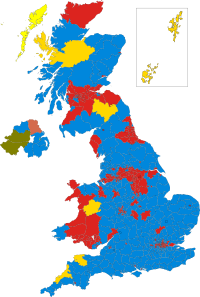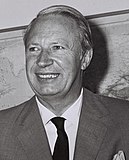
Back الانتخابات العامة في المملكة المتحدة 1970 Arabic যুক্তরাজ্যের সাধারণ নির্বাচন, ১৯৭০ Bengali/Bangla Eleccions al Parlament del Regne Unit de 1970 Catalan Etholiad cyffredinol y Deyrnas Unedig, 1970 Welsh Britische Unterhauswahl 1970 German Elecciones generales del Reino Unido de 1970 Spanish Yhdistyneen kuningaskunnan parlamenttivaalit 1970 Finnish Élections générales britanniques de 1970 French הבחירות הכלליות בבריטניה 1970 HE Elezioni generali nel Regno Unito del 1970 Italian
| |||||||||||||||||||||||||||||||||||||||||||||||||
All 630 seats in the House of Commons 316 seats needed for a majority | |||||||||||||||||||||||||||||||||||||||||||||||||
|---|---|---|---|---|---|---|---|---|---|---|---|---|---|---|---|---|---|---|---|---|---|---|---|---|---|---|---|---|---|---|---|---|---|---|---|---|---|---|---|---|---|---|---|---|---|---|---|---|---|
| Opinion polls | |||||||||||||||||||||||||||||||||||||||||||||||||
| Turnout | 72.0% ( | ||||||||||||||||||||||||||||||||||||||||||||||||
| |||||||||||||||||||||||||||||||||||||||||||||||||
 Colours denote the winning party—as shown in § Results | |||||||||||||||||||||||||||||||||||||||||||||||||
 Composition of the House of Commons after the election | |||||||||||||||||||||||||||||||||||||||||||||||||
| |||||||||||||||||||||||||||||||||||||||||||||||||
The 1970 United Kingdom general election was held on Thursday 18 June 1970. It resulted in a surprise victory for the Conservative Party under leader Edward Heath, which defeated the governing Labour Party under Prime Minister Harold Wilson. The Liberal Party, under its new leader Jeremy Thorpe, lost half its seats. The Conservatives, including the Ulster Unionist Party (UUP), secured a majority of 30 seats. This general election was the first in which people could vote from the age of 18, after passage of the Representation of the People Act the previous year, and the first UK election in which party affiliations of candidates were put on the ballots.[1]
Most opinion polls prior to the election indicated a comfortable Labour victory, and put Labour up to 12.4% ahead of the Conservatives. On election day, however, a late swing gave the Conservatives a 3.4% lead and ended almost six years of Labour government, although Wilson remained leader of the Labour Party in opposition. Writing in the aftermath of the election, the political scientist Richard Rose described the Conservative victory as "surprising" and noted a significant shift in votes between the two main parties.[2] The Times journalist George Clark wrote that the election would be "remembered as the occasion when the people of the United Kingdom hurled the findings of the opinion polls back into the faces of the pollsters".[3]
The result would provide the mandate for Heath as Prime Minister to begin formal negotiations for the United Kingdom to become a member state of the European Communities (EC)—or the "Common Market" as it was more widely known at the time, before it later became the European Union; the UK officially joined the EC on 1 January 1973, along with the Republic of Ireland and Denmark.
Frontbench Labour politicians George Brown and Jennie Lee were voted out at this election.
This marked the end of a series of elections where both main parties won over 40% of the vote. This would not occur again for the Conservatives for nine years; Labour would wait 27.
The result was cast as a two-party politics outcome, with no third party reaching 10% of the (total) vote. Such an outcome would not happen again until the 2017 election.
The election was the last in which a nationwide UK party gained seats in Northern Ireland.[4] The UUP sat with the Conservative Party at Westminster, traditionally taking the Conservative parliamentary whip. To all intents and purposes the UUP functioned as the Northern Ireland branch of the Conservative Party. However, hardline unionist Ian Paisley unseated the UUP incumbent in North Antrim, a clear sign that the UUP's complete dominance over unionist politics in Northern Ireland was already starting to weaken. In 1972, in protest over the permanent prorogation of the Parliament of Northern Ireland, Westminster UUP MPs withdrew from the alliance.[5][page needed]
Cite error: There are <ref group=note> tags on this page, but the references will not show without a {{reflist|group=note}} template (see the help page).
- ^ HC Deb 10 December 1968 vol 775 cc242-87
- ^ Richard Rose (1970). "Voting Trends Surveyed". The Times Guide to the House of Commons 1970. London: Times Newspapers Limited. p. 31.
- ^ George Clark (1970). "The General Election Campaign, 1970". The Times Guide to the House of Commons 1970. London: Times Newspapers Limited. p. 26.
- ^ Keohane, Dan (2000), Security in British Politics 1945–99, p. 183
- ^ Bell, Stuart; Seldon, Anthony, The Heath Government 1970–74: A Reappraisal

